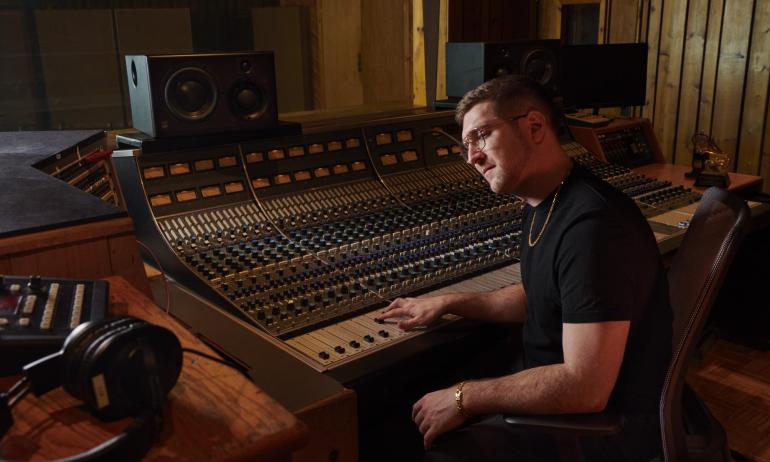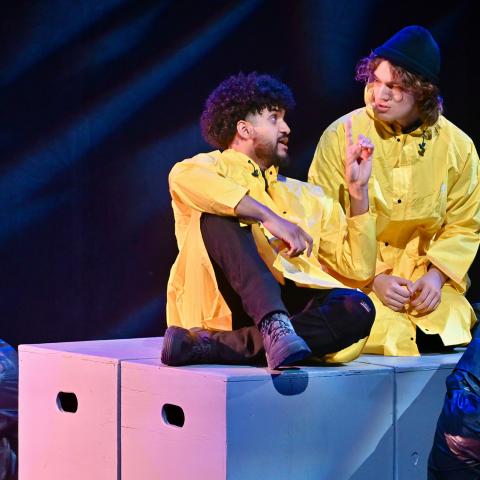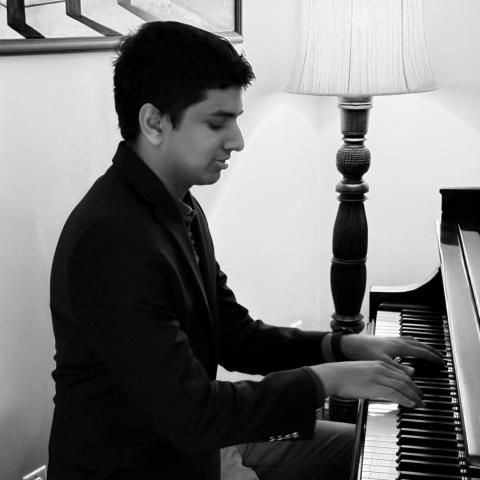Alumni Profile: Miguel Zenon '98

Alto Saxophonist Miguel Zenon '98
In addition to his titles as jazz saxophonist, bandleader, and composer, Miguel Zenón ’98 can now add genius to the list. This past fall, he was selected by the John D. and Catherine T. MacArthur Foundation to receive a $500,000 award, frequently called the “genius grant.” The foundation cited Zenón, as a musician and composer who is “reestablishing the artistic, cultural, and social tradition of jazz while creating an entirely new jazz language for the 21st century.”
This prestigious award underscores the fruitfulness of the decade for Zenón since he graduated from Berklee. In 2001 he earned his master’s degree from the Manhattan School of Music and has recorded four albums as a leader (three of which—Ceremonial, Jibaro, and Awake—were issued on the Marsalis Music imprint). As a vital member of the New York jazz scene, Zenón has recorded and performed with a large and impressive roster of jazz artists that includes David Sanchez, Charlie Haden, Danilo Pérez, Bobby Hutcherson, the Mingus Big Band, Antonio Sanchez, and Steve Coleman, to name a few. He is also a founding member of the San Francisco Jazz Collective and has worked on the Collective’s projects alongside Joe Lovano, Dave Douglas, Brian Blade, and Joshua Redman, among others.
While growing up in Santurce, a poor section of San Juan, Puerto Rico, Zenón became drawn to music. “That area would be considered a [housing] project in the States,” Zenón says. “I lived there until I was 12 or 13.” By the age of 11, Zenón became interested in music and, until he was 17, pursued classical studies at Escuela Libre de Música. He says piano was first choice for his principal instrument, but because he arrived late to enroll, all the spots for piano students were filled. Ironically, alto saxophone was his third choice. It wasn’t until Zenón was 15 that he was introduced to jazz through friends. A local university radio station aired jazz shows from National Public Radio, and Zenón began tuning in.
“I taped shows like Jazz Set and bought a Charlie Parker compilation and the Miles Davis ’58 sessions,” says Zenón. “When I began listening, I didn’t know anything about improvisation or theory. I just tried to grasp things on my own by transcribing and playing with people.” Zenón received a scholarship at the Puerto Rico Heineken Jazz Festival to attend Berklee, where he became more deeply immersed in jazz.
“I had a couple things together when I got there,” he says. “I met students from all over the world, and most of them were more advanced than I was. It was a big inspiration to interact and play every day with others my age who had a lot to show me. I learned an incredible amount from Bill Pierce, who was my main saxophone instructor, and from Hal Crook, Ed Tomassi, and other Berklee teachers.”
After earning his degree, Zenón accepted a scholarship for graduate work in performance at Manhattan School of Music. He also began to explore composition. “I took some composition and analysis courses with a couple of great teachers who really opened up my mind to a lot of things,” he says. “I was writing a little bit after Berklee, but when I got to Manhattan, I started pushing it, making it a part of my routine to write a little bit every day.”
Zenón’s composing skills and his virtuosity on the saxophone have brought him acclaim among other musicians, critics throughout the country, and foundations. In April 2008, the John Simon Guggenheim Memorial Foundation awarded him a fellowship to write a jazz composition based on folkloric plena music from Puerto Rico. And in December, at the Jazz Gallery in New York, his work Esta Plena for a septet, which includes ethnic percussion and vocalists, received its premiere.
Zenón’s unique blend of elements of traditional Latin American music with contemporary jazz has been the artist’s calling card. But first and foremost, Zenón is a jazz player who explores the musical roots of his native country to add color and dimension to his compositions. “Those of the new generation of Latin jazz players aren’t trying to make instrumental dance music with some jazz elements,” he says. “The music comes more from jazz than Latin dance and folkloric music. It’s more about finding a balance between the two than trying to make one dominate the other.”
Regarding his plans for the MacArthur grant money, Zenón has a couple of ideas. He hopes to bring in various artists for free jazz concerts in outlying parts of Puerto Rico. He also wants to research connections between various Latin American and African musical styles. He seeks to explore the effect of colonization on tribes and people that were transplanted to various parts of the Americas where they created new music and culture.
“I’m really interested in the similarities in the folkloric music of these countries,” Zenón says. “You find music from Puerto Rico that’s similar to music from Belize, Peru, or Ecuador, while their other styles of music are very different. I want to visit countries in Latin America and Africa to record music and talk with musicians to see what elements can be traced back to Africa. I want to see how the music expanded on our continent. This is a massive project, something I've been thinking about for a while.”
When asked about his long-term career plans, Zenón says that the most important thing is not to get too comfortable. “I don’t want to get stuck doing the same things over and over, just doing what works. For me, it’s all about finding new things to do, new challenges. I want to keep moving and growing. As long as I’m doing that, I’m gonna feel like I’m doing well.”




